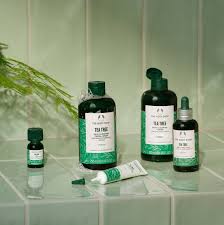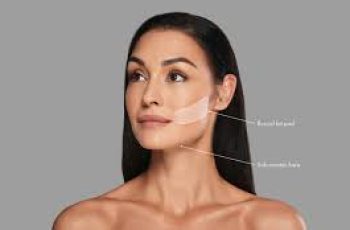
Tea Tree Oil in Skin Care: In-depth Guide on Benefits, Uses, and Considerations
Introduction to Tea Tree Oil:
Tea tree oil (TTO), derived from the leaves of the Melaleuca alternifolia tree native to Australia, has been used for thousands of years for its medicinal and therapeutic properties.
Indigenous Australians have long relied on the oil for treating a variety of health issues, including skin infections, respiratory problems, and minor injuries like bruises.
In modern times, tea tree oil has remained a staple ingredient in many cosmetic and skincare products due to its powerful antimicrobial, anti-inflammatory, and soothing properties.
Today, it is widely recognized as one of the best natural solutions for treating skin conditions like acne, eczema, fungal infections, and more.
Despite its myriad benefits, it is crucial to understand the safe usage of this potent ingredient, especially due to its potential as an allergen in some individuals.
What is Tea Tree Oil?
Tea tree oil is an essential oil derived from the leaves of the Melaleuca alternifolia plant, which is native to the coastal regions of Australia.
It is a colorless or pale yellow liquid with a distinctive, refreshing, and somewhat medicinal fragrance.
The oil is extracted through steam distillation and is composed primarily of terpenes, which are organic compounds that contribute to its antimicrobial and anti-inflammatory properties.
The oil contains over 100 active compounds, the most significant of which are terpinen-4-ol, gamma-terpinene, alpha-terpinene, alpha-terpineol, and cineole.
Tea tree oil is widely regarded as one of the most powerful natural antimicrobial agents available, making it a common ingredient in skincare products formulated to treat acne, infections, and other skin conditions.
Additionally, its anti-inflammatory, antifungal, and antioxidant properties have made it a popular ingredient in hair care and body care products as well.
Tea Tree Oil’s Antimicrobial Properties and Their Benefits:
One of the primary reasons for the popularity of tea tree oil in skincare is its exceptional ability to combat bacteria, fungi, and viruses.
It is considered a broad-spectrum antimicrobial, meaning it works effectively against a wide range of microorganisms.
This makes it an ideal ingredient in products designed to treat skin infections, acne, and fungal conditions.
Antibacterial: Tea tree oil is widely known for its potent antibacterial properties. It can effectively kill bacteria that cause skin infections, acne, and other inflammatory skin conditions.
A study published in the Journal of Dermatology found that tea tree oil could reduce acne lesions and inflammation with fewer side effects compared to common acne treatments like benzoyl peroxide.
Antifungal: Another major benefit of tea tree oil is its antifungal properties. It has been shown to be effective in treating fungal infections such as athlete’s foot, ringworm, and even dandruff.
In fact, a study from the International Journal of Dermatology reported that tea tree oil could significantly improve symptoms of dandruff after repeated use.
Antiviral: Tea tree oil also exhibits antiviral properties, which can be useful in treating conditions such as cold sores, warts, and certain viral skin infections.
For example, a study published in the Journal of Clinical Virology suggested that tea tree oil could help reduce the spread of the herpes simplex virus.
Anti-inflammatory: Tea tree oil contains compounds that help reduce skin inflammation, making it useful in the treatment of conditions like eczema, psoriasis, and rosacea.
It can reduce the redness, swelling, and irritation associated with these inflammatory conditions, helping to soothe the skin and promote healing.
Antioxidant: Antioxidants are substances that protect the skin from damage caused by free radicals, which can contribute to the aging process and the development of skin diseases.
Tea tree oil contains several antioxidant compounds, which help protect the skin from oxidative stress and reduce the appearance of fine lines and wrinkles.
Tea Tree Oil for Acne Treatment:
Acne is one of the most common skin conditions that people seek treatment for, and tea tree oil is widely regarded as one of the best natural remedies for this condition.
Acne is caused by a combination of factors, including excess sebum production, clogged pores, and bacterial infection.
Since tea tree oil has potent antimicrobial properties, it can help reduce the bacteria that contribute to acne breakouts. It also has anti-inflammatory effects that reduce the redness and swelling often associated with acne.
Several studies have shown that tea tree oil can be as effective as benzoyl peroxide, a common acne treatment, but with fewer side effects.
A 2007 study published in The Medical Journal of Australia found that a 5% tea tree oil gel was as effective as a 5% benzoyl peroxide gel in treating mild to moderate acne.
The main advantage of tea tree oil is that it tends to be gentler on the skin, causing less dryness and irritation compared to benzoyl peroxide.
Tea tree oil can be used in various ways to treat acne. It is often included in cleansers, toners, and spot treatments.
For those with more severe acne, tea tree oil can be applied directly to pimples up to three or four times a day, ensuring that the skin does not become overly dry or irritated.
For mild acne, a few drops of diluted tea tree oil can be applied to the affected areas using a cotton swab.
Tea Tree Oil for Sensitive Skin and Other Conditions:
While tea tree oil is generally well-tolerated by most skin types, it is essential to remember that it is a potent ingredient, and excessive use or incorrect application may cause skin irritation or allergic reactions.
It is especially important to be cautious when using tea tree oil on sensitive skin, as it may cause redness, dryness, or a burning sensation.
Before using tea tree oil on sensitive skin or in products for conditions like eczema or rosacea, it is advisable to perform a patch test to check for any adverse reactions.
Sensitive Skin: People with sensitive skin can still benefit from tea tree oil’s antimicrobial and anti-inflammatory properties,
but it is important to use it in lower concentrations and in combination with soothing ingredients like aloe vera, chamomile, or calendula.
If you have a known sensitivity to essential oils or have had a reaction to tea tree oil in the past, it’s best to avoid using it altogether.
Eczema: Eczema is a chronic condition that causes dry, inflamed, and itchy skin.
While tea tree oil is not a moisturizer and cannot repair the skin’s barrier, its antimicrobial properties can help prevent secondary infections that often occur in eczema-prone skin.
When combined with barrier-repairing moisturizers and soothing oils such as jojoba or argan oil, tea tree oil can be an effective adjunct to an eczema treatment regimen.
Psoriasis: Psoriasis is a skin condition characterized by the rapid turnover of skin cells, leading to thick, scaly patches.
Tea tree oil has been shown to have anti-inflammatory effects, which may help reduce the inflammation associated with psoriasis.
While there is limited research on the effectiveness of tea tree oil specifically for psoriasis, its antimicrobial and soothing properties may provide relief for those with mild cases.
Rosacea: Rosacea is a chronic inflammatory skin condition that causes redness, visible blood vessels, and sometimes acne-like breakouts.
Tea tree oil’s anti-inflammatory properties can help reduce the redness and swelling associated with rosacea.
Additionally, tea tree oil has been shown to be effective in killing Demodex mites, which have been linked to rosacea flare-ups.
A 2017 study found that a combination of tea tree oil and metronidazole was more effective than metronidazole alone in treating rosacea.
Tea Tree Oil for Hair Care:
Tea tree oil is also widely used in hair care products, primarily due to its antifungal and antimicrobial properties.
It can help treat a variety of scalp conditions, including dandruff, itching, and fungal infections.
In addition, tea tree oil is known to promote hair growth by improving blood circulation to the scalp and reducing hair loss caused by fungal or bacterial infections.
Dandruff: Dandruff is a common scalp condition that can cause flakiness, itching, and irritation.
Tea tree oil has been shown to be effective in reducing dandruff symptoms when used at a concentration as low as 5%.
A 2002 study published in the Australasian Journal of Dermatology found that tea tree oil significantly reduced dandruff after four weeks of regular use.
Fungal Infections: Tea tree oil is effective in treating fungal infections on the scalp, such as those caused by Malassezia yeast, which is often responsible for dandruff and seborrheic dermatitis.
Regular use of tea tree oil in shampoos or scalp treatments can help keep these infections at bay.
Hair Growth: Tea tree oil has been shown to have potential benefits for promoting hair growth.
A study published in Toxicological Research in 2013 found that tea tree oil could increase hair growth in mice.
While more research is needed to confirm its effectiveness in humans, tea tree oil is often included in hair loss treatments for its ability to stimulate the scalp and promote healthy hair growth.
Safety Considerations and Side Effects of Tea Tree Oil:
While tea tree oil offers many benefits, it is important to use it with caution. Here are some safety considerations and potential side effects:
Allergic Reactions: Some individuals may develop an allergic reaction to tea tree oil, resulting in redness, irritation, or even contact dermatitis.
Always perform a patch test before using tea tree oil on a large area of the skin.
Oral Consumption: Tea tree oil should never be ingested, as it can be toxic when consumed orally. Symptoms of poisoning may include nausea, vomiting, dizziness, and confusion.
Pregnancy and Children: Pregnant women and young children should exercise caution when using tea tree oil.
If you are pregnant or have concerns about using essential oils, consult with a healthcare provider before use.
Conclusion:
Tea tree oil is an incredibly versatile and effective natural remedy for a wide range of skin and hair concerns.
Whether you are treating acne, dandruff, fungal infections, or skin inflammation, tea tree oil offers a safe and natural solution.
However, it is important to use it appropriately, paying attention to potential side effects and allergens.
As with any skincare product, always do a patch test and consult with a dermatologist if you have concerns about incorporating tea tree oil into your routine.
By understanding its benefits, potential risks, and the best ways to use it, you can safely enjoy the powerful advantages that tea tree oil brings to your skincare and hair care regimen.


